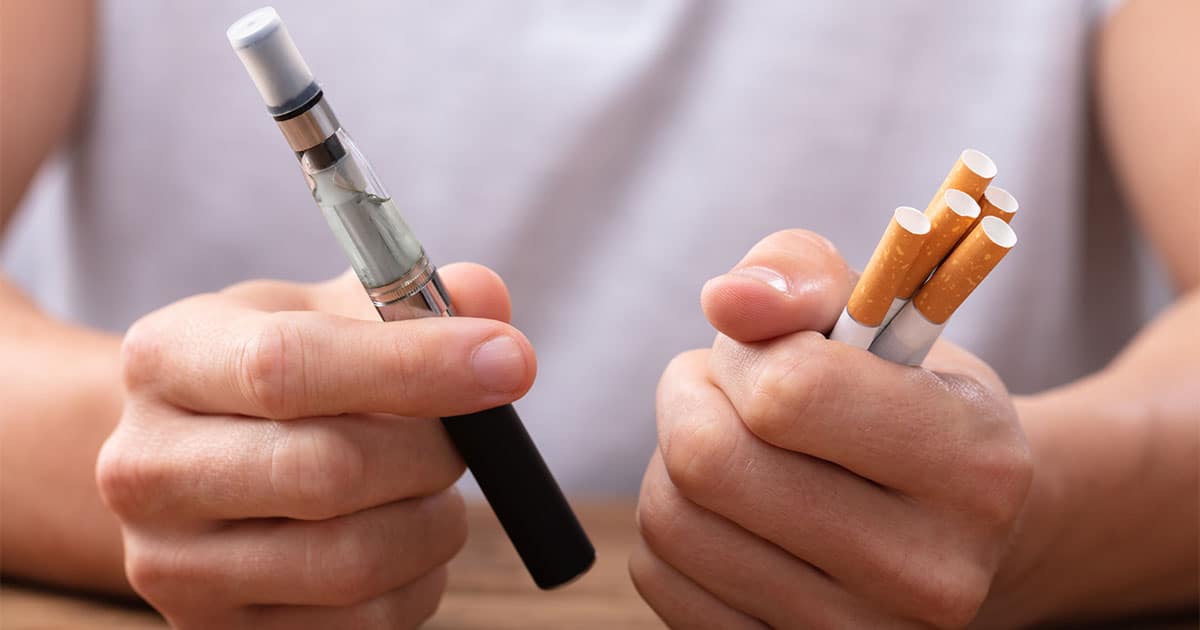
With over 85% of American adults over the age of 18 reporting that they have drunk alcohol at some point in their lifetime, many of us are part of that statistic. Depending on the amount and frequency of alcohol consumption, drinking may or may not be problematic.
In 2019, alcoholism, also referred to as alcohol use disorder, affected more than 14.1 million adults. Are your drinking habits crossing into dangerous territory?
If you have ever found yourself wondering ‘am I becoming an alcoholic’, our article is here to help you identify some of the telltale warning signs and what you can do about it.
What is Alcoholism?
Like other forms of addiction, alcoholism is a chronic disease. It is a condition where one can no longer control their drinking despite negative consequences in their life.
An alcoholic no longer chooses whether or not to drink, it is compulsive. There is both a physical and emotional dependence on alcohol.
Alcoholism is a combination of nature and nurture. There is a strong hereditary component, with risk significantly heightened by predetermined genetic factors. These genes are then further impacted by environmental factors, such as early exposure to alcohol through parents or peers. Furthermore, men are nearly twice as likely to suffer from alcoholism than women.
Health Impacts of Alcoholism
Heavy drinking takes a severe toll on the liver. It leads to fibrosis, cirrhosis, steatosis, alcoholic hepatitis, and liver cancer, all of which fall under the umbrella term of ‘liver disease‘. Of those who die of liver disease each year, roughly half are attributed to alcohol.
Your liver isn’t the only thing of concern for alcoholics. Other common health problems include:
- Heart problems such as irregular heartbeat, high blood pressure, and stroke.
- Pancreatitis, which begins as a painful inflammatory condition and progresses to a chronic disease of its own.
- Various types of cancer.
- A weakened immune system and increased risk of infection.
- Brain damage and cognitive problems.
- Various mood and anxiety disorders.
Am I Becoming an Alcoholic? 8 Signs of Alcoholism
While there are certain stereotypes, the reality is that there is no such thing as a ‘typical’ alcoholic. People affected by alcoholism come in all different genders, ages, and backgrounds. Furthermore, many alcoholics still manage to hold down a job or fulfill other responsibilities. This is what is referred to as a high-functioning alcoholic.
If you are wondering how to spot alcoholism in yourself or a loved one, here are some signs to look for.
- Drinking in the Morning
Waking up and cracking a beer or pouring a drink often becomes necessary once alcoholism sets in. Unpleasant feelings likely arise without it, such as shaky hands, sweating, and other alcohol withdrawal symptoms.
- Inability to Moderate Alcohol Consumption
Does a glass of wine with dinner always seem to turn into a nightly bottle? Do you find yourself consuming far more alcohol than your peers at social events, perhaps blacking out? One of the early signs of alcoholism occurs when more alcohol is consistently consumed and for a longer period of time than desired or intended.
- Making Excuses for Drinking
Attempting to justify drinking as a necessary coping mechanism for stress, anxiety, heartbreak, or other emotions is another red flag. Ironically, drinking to excess only intensifies the negative feelings that one seeks to escape in the first place.
- Losing Interest in Hobbies, Friends, and Family
As drinking becomes less of a choice and more of a necessity, it takes first priority over everything else. This includes both responsibilities at home as well as recreational and social activities that you or your loved one once enjoyed.
- Drinking Alone
Drinking in isolation often occurs out of shame or to avoid confrontation by concerned family or friends. Drinking alone is especially common in high-functioning alcoholics as they are often attempting to maintain the façade of a healthy, normal life.
- Rage, Irritability, and Mood Swings
Exhibiting significant changes to mood, aggressive behavior, and lashing out over minor issues frequently accompany alcoholism. Are you feeling exceptionally irritable all the time? Consider if your alcohol consumption is to blame.
- Legal, Financial, and/or Personal Problems
Continuing to drink despite a significant toll on your finances is a key indicator of alcoholism. Oftentimes this is compounded by fines and legal expenses associated with run-ins with the law as a result of alcohol (such as DUI). Additionally, interpersonal relationships become strained (particularly within a marriage).
- Noticeable Changes to Appearance
Once alcoholism begins to set in, hygiene takes a back burner. Noticeable changes to appearance, such as not shaving, unkempt hair, or wearing the same clothes two days in a row are some of the first signs. As time goes by, flushed skin, a puffy nose, and sunken eyes become noticeable. Weight loss, accompanied by a ‘beer belly’ is also typical.
A Few More Questions to Ask Yourself
There are various screening tools and exercises to help with identifying alcoholism. One of the simplest and most popular is the CAGE test, which consists of only four questions. They are:
- Have you ever felt you should cut down on your drinking?
- Have people annoyed you by criticizing your drinking?
- Have you ever felt bad or guilty about your drinking?
- Have you ever had a drink first thing in the morning to steady your nerves or get over your hangover?
If you answer ‘yes’ to two or more questions, professional assistance is recommended.
Treatment for Alcoholism
If you or someone you know is struggling with alcoholism, it is important to seek professional help. Not only is it uncomfortable, but attempting to suddenly quit drinking ‘cold turkey’ from one day to the next is also dangerous.
A specialized alcohol treatment center provides a safe, supervised path to recovery and the greatest chance at long-term sobriety. Depending on your circumstances, there are both in-patient and out-patient treatment options available. Afterward, be sure to follow through with regular counseling or peer-support groups like Alcoholic Anonymous.
Don’t Ignore the Warning Signs
Alcohol consumption is pervasive in our society and it’s no surprise that so many Americans battle with its negative consequences.
If your drinking habits have got you wondering ‘am I becoming an alcoholic’, we hope this article is provided some useful guidance. If you or a loved one are sliding into dangerous territory with drinking habits, it is better to take action sooner rather than later and regain control over your life.
Did you like what you just read? Be sure to keep browsing our blog for more informative content like this.




